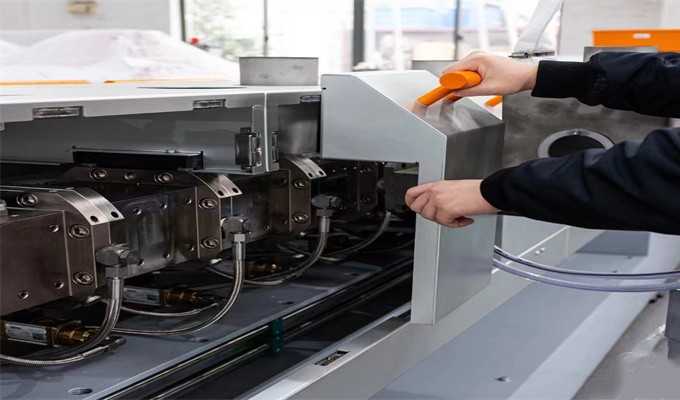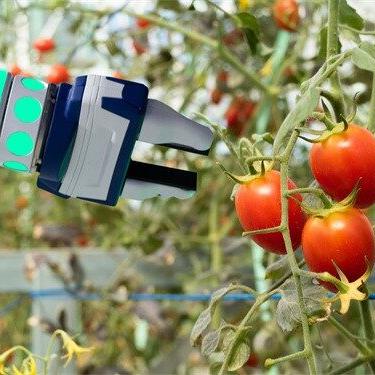What Is Industrial Design Prototyping?
In order for industrial products to be more competitive in the market, engineers create opportunities between design concepts and manufacturing through industrial design prototypes.
An industrial design prototype is the carrier of design intention on industrial products. It can provide designers with ideal physical effects through appropriate technology and a continuous iterative process.
The process of an industrial design prototype usually includes determining the concept of the required industrial design prototype, sketching the design prototype, technical manufacturing and verification adjustment, etc. Finally, a certain amount of manufacturing is done on the finalized industrial design prototype.
Common Applications of Industrial Design Prototyping

Mechanical parts can be visually analyzed in detail through prototyping, and understand the interaction and assembly of parts and other components. The specific parts usually have bolts, bushings, pulleys, etc.
Prototypes can create suitable products based on the experience feedback and communication of specific groups. This is especially common in medical device applications such as braces, prosthetics, dentures, etc.

Under the prototype design, auto parts are tested and verified to ensure the normal operation of the car as a whole. In the way of continuous iteration of prototypes, auto parts can be continuously upgraded and optimized. Specific automotive components include automotive gear shift knobs, pistons, valve covers, etc.

Mobile phones, computers, watches, etc. in electronic products can complete the functional design required by market users through CAD software and modeling under prototype design. Respond to early-discovered risks and challenges with the help of prototype testing and verification to avoid affecting customer experience.
Machining Technology of Industrial Design Prototype
Importance of Industrial Design Prototyping
Market demand prompts the design of industrial products to be continuously adjusted and innovated to meet actual needs. This makes engineers need to quickly develop industrial products that meet specific functions.
Industrial design prototypes provide engineers with digitally visualized information and issues during the development process. It is convenient for engineers and demand users to fully explore the product, and accelerates the process of prototype testing verification and development.
The industrial design prototype can get correct feedback and modification in an all-around way. And avoid the problems and risks that may occur in the final production of later products, which is the key that cannot be ignored when industrial products are launched into the market and applied.


Tirapid Industrial Design Prototyping Specialist
It has to be said that good industrial product design and manufacturing requires strict control of the process by prototyping experts. As an excellent machining prototype manufacturer, Tirapid has the service capability of prototype design and manufacturing of metal or plastic parts. From the forming, machining, and surface treatment of parts, we provide one-stop services such as design, manufacturing, testing, and verification.
Whether your project is a one-piece prototype or low-volume manufacturing, we provide the most reasonable and fair-cost solution. We are committed to creating industrial design products for you that meet the expectations of prototype design through laser cutting, CNC milling, EDM, and other technologies.
Feel free to contact Tirapid online to find the most suitable industrial design prototyping specialist for your prototyping project.
Types and Principles of Industrial Design Prototyping
Concept Prototype
Conceptual prototypes are primarily focused on conveying initial design ideas to a specific interest group, rather than demonstrating product functionality. This is a common prototype in the early development stage of prototype products, which is beneficial to determine the design direction of product functions, performance, specifications, etc.
Function prototype
This is one of the most common types of prototyping in industrial design. It is mainly aimed at testing and verifying the functionality of prototype products. And make sure that the final prototype product can have interactive or responsive functions to maintain normal operation.
Aesthetic Archetype
This is the type of prototype that focuses primarily on the appearance and aesthetics of the prototype product. It will have criteria and scope for evaluation in terms of materials, textures, and finishes to ensure that the appearance and aesthetics are in line with the final creation conditions.
Advantages of Industrial Design Prototyping
Prototype verification is to ensure that the product can meet the standards of the target group and that the prototype can solve practical problems. Prototype verification enables engineers and developers to determine whether a prototype meets certain criteria and conditions.
Low-volume manufacturing is well suited for the development and launch of industrial prototypes. It can be fabricated in hours or days. Greatly reduce the time and cost of a new project investment.
Prototypes show the initial form of industrial products through physical models or computer modeling. It enables potential users and developers to have a clear visual experience of the design concept. And it allows designers and engineers to have a comprehensive understanding and discussion of the form, function, and characteristics of the product.
Prototypes allow testing of quality, functionality, performance, and materials of industrial products before production. Engineers can identify problems and defects in industrial products based on the status of prototypes, and correct and optimize them in a timely manner.
Engineers and developers understand user preferences and test results through the iterative design of prototypes. And be able to clarify the details of the improvement of the prototype product and the direction of further improvement.
The structure of industrial prototyping can be modified from drawings before production. But once the parts start to be produced, it’s hard to make drastic changes.
Generally, Tirapid can complete simple prototypes within 3-7 days. However, complex design prototypes need to be continuously tested and verified during the development process to ensure that they meet user expectations. And this may take a week or more.
Typically, the cost of prototyping is from a few hundred dollars to a few thousand dollars.
Because the prototyping of industrial products depends on the complexity of the construction and the materials required.
Please send your prototype designs to our email (prototypes@tirapid.com). Tirapid will reply you with a reasonable price and manufacturing proposal within hours.
Appropriate materials are a prerequisite for meeting the manufacturing requirements of the prototype, such as performance or appearance. And usually. Materials used for prototyping include metals such as aluminum, stainless steel, titanium, steel, brass, and bronze. Plastic materials are also common in prototyping. Such as ABS, acrylic, Teflon, PEEK, PVC, etc. Special materials such as rubber, wood, and resin are usually one of the materials for special prototypes.
Typically, Tirapid supports laser cutting, rapid prototyping, 5-axis milling, water jet cutting, turning and other precision machining technologies. It is worth noting that the technology of prototype manufacturing and processing needs to be selected in combination with product function, complexity, materials, and other reasons.






